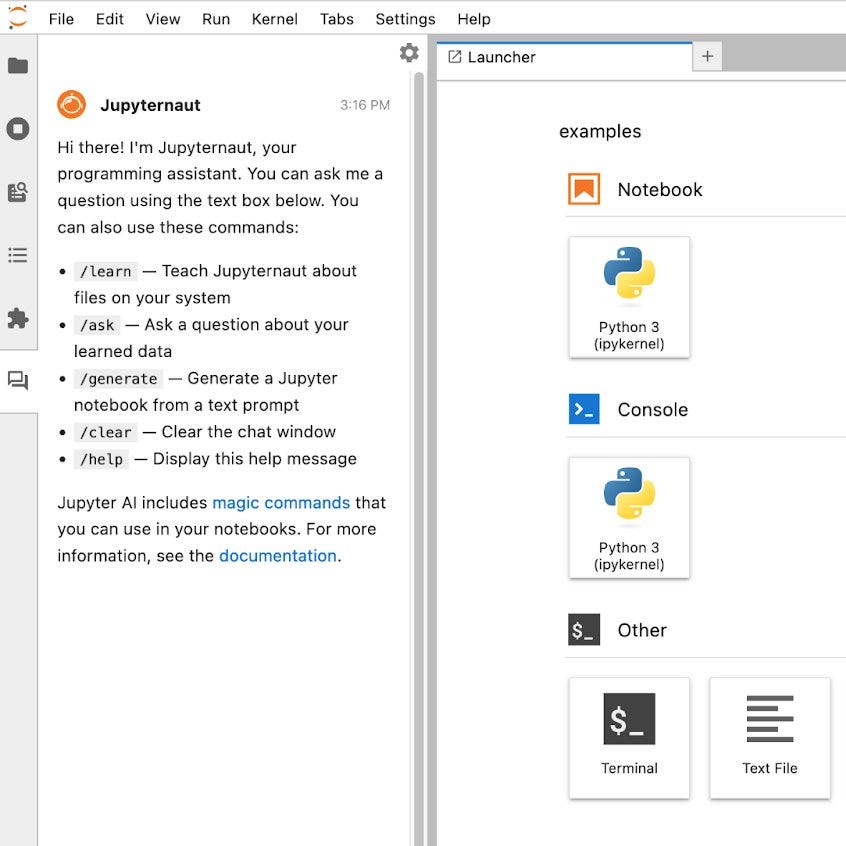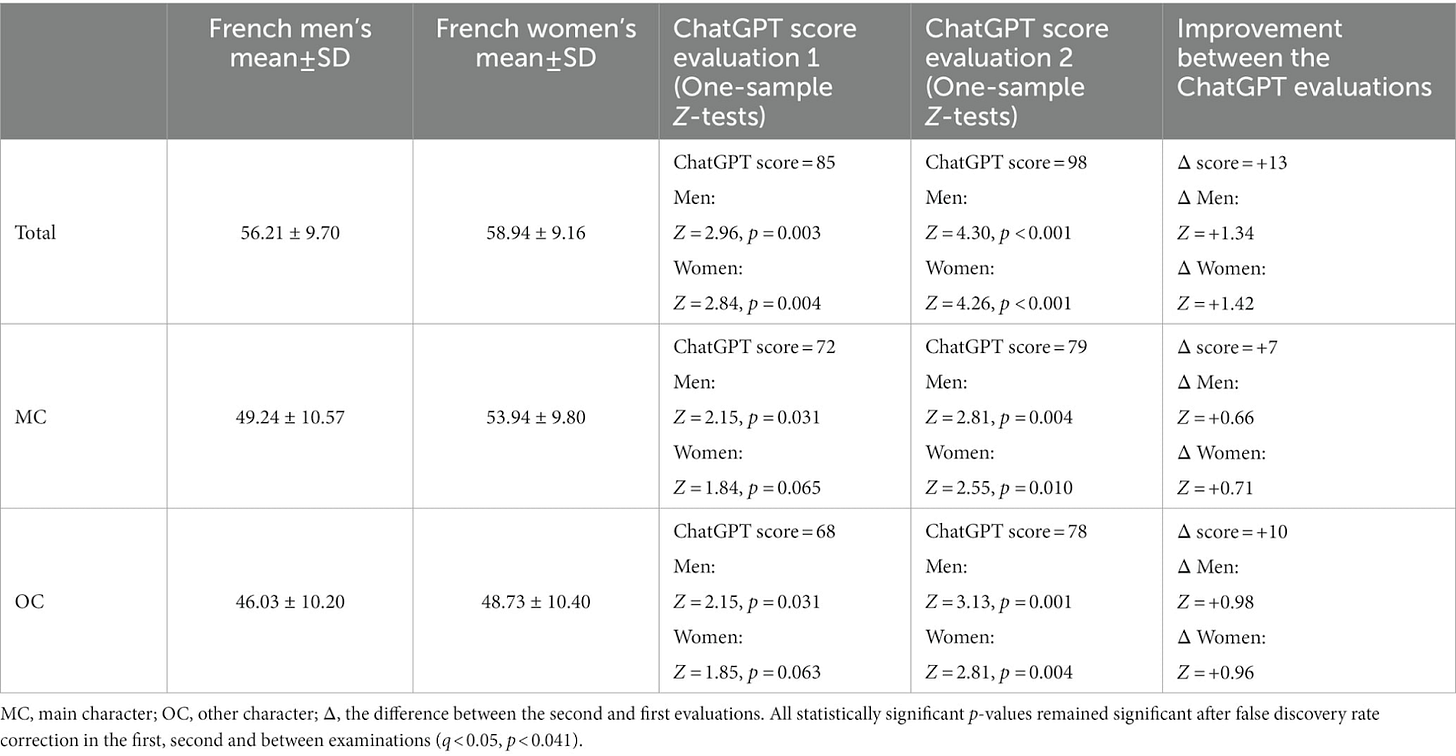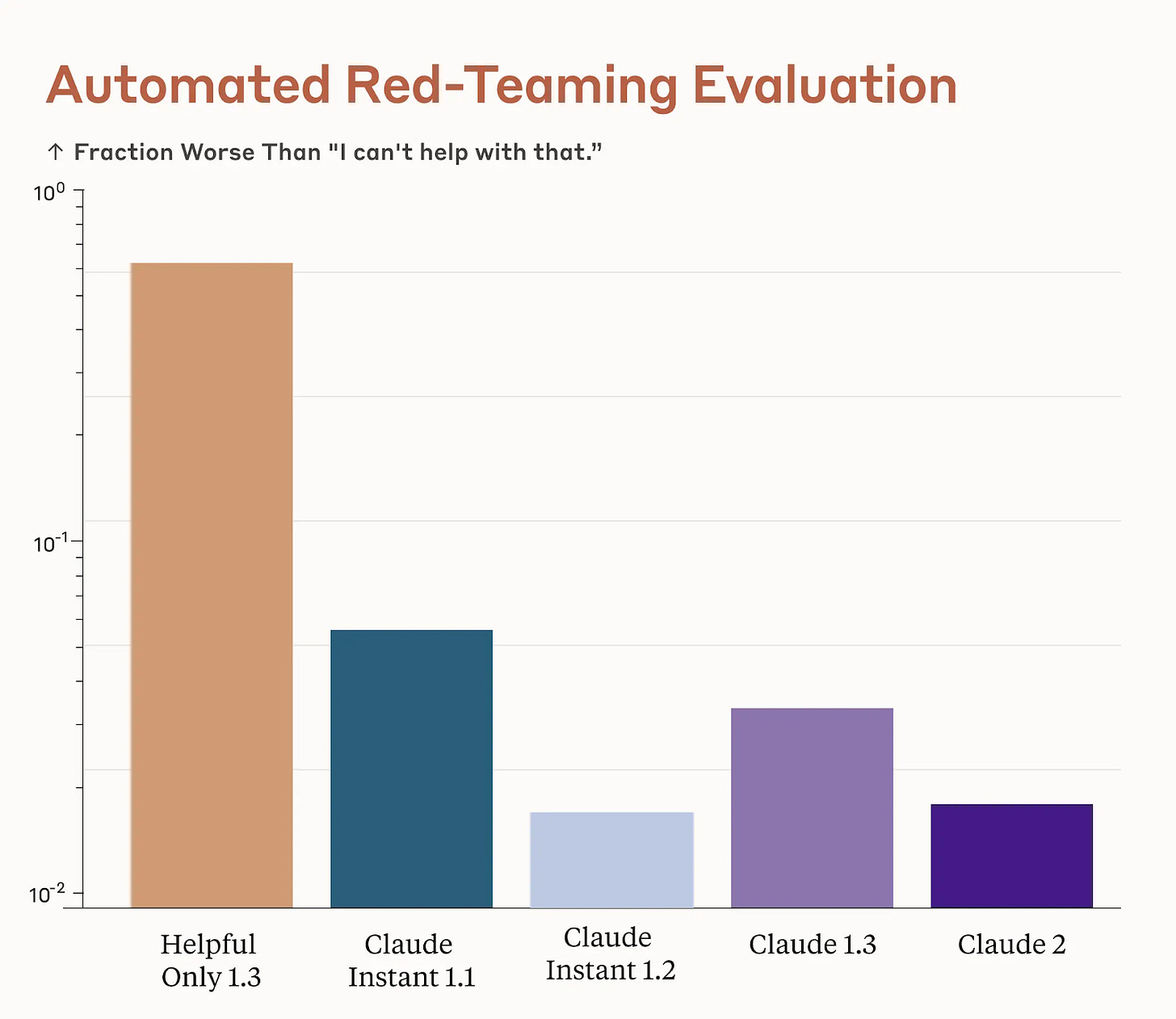AI Weekly Rundown (August 5 to August 11)
Apple makes aggressive AI moves while other tech giants continue the battle for AI supremacy.
Hello, Engineering Leaders and AI Enthusiasts,
Another eventful week in the AI realm. Lots of big news from huge enterprises.
In today’s edition:
✅ Apple bets big on AI
✅ Jupyter brings AI to notebooks
✅ ChatGPT’s emotional awareness is more than humans'. What?
✅ Microsoft’s many AI monetization plans
✅ OpenAI launches a web crawler to train ChatGPT
✅ AI deep fake audios are getting scarily realistic
✅ NVIDIA’s Biggest AI Breakthroughs
✅ Google’s AI Surprise for Developers
✅ Stability AI launches LLM code generator
✅ Anthropic’s Claude Instant 1.2- Faster and safer LLM
✅ Google attempts to answer if LLMs generalize or memorize
✅ IBM plans to make Meta’s Llama 2 available on watsonx.ai
✅ Apple gearing up for an AI showdown
✅ Midjourney’s present + future plans
✅ MetaGPT tackling LLM hallucination
Let’s go!
Apple bets big on AI
Apple’s CEO Tim Cook has stated that AI and ML are embedded in every company product. This comes after concerns were raised about Apple's lack of discussion on its AI plans while competitors have been actively incorporating the technology into their products. He also emphasized that AI is central to the design of Apple's products, contradicting suggestions that the company has not yet integrated the technology.
Cook reassured that Apple has invested in AI for years, and this year’s Research & Development spending has hit $22.61 billion. They are also hiring dozens of AI jobs in the US, France, and China, looking to fill roles that could help build Gen AI tools.
Jupyter brings AI to notebooks
Jupyter AI is a tool that brings generative AI to Jupyter notebooks, allowing users to explore and work with AI models. It offers an %%ai magic command that turns the notebook into a reproducible generative AI playground, a native chat UI for working with generative AI as a conversational assistant, and support for various generative model providers.
Jupyter AI is compatible with JupyterLab, with version 1.x supporting JupyterLab 3.x, and version 2.x supporting JupyterLab 4.x. The main branch of Jupyter AI focuses on the newest supported version of JupyterLab, with features and bug fixes backported to JupyterLab 3 if deemed valuable.
(official announcement)
(GitHub)
ChatGPT’s emotional awareness is more than humans'. What?
A study found that ChatGPT has higher emotional awareness than humans. The machine was subjected to a standardized test measuring human emotional awareness and scored significantly higher. The test required participants to show empathy in fictional scenarios.
ChatGPT outperformed humans in all categories, achieving an overall score of 85 compared to 56 for men and 59 for women. The researchers suggest that ChatGPT could be helpful in psychotherapy, cognitive training, and diagnosing mental illness. Previous studies have shown that people perceive ChatGPT's responses as more empathetic than medical professionals.
Microsoft’s many AI monetization plans
Microsoft has announced new Azure AI infrastructure advancements and availability to bring its customer closer to the transformative power of generative AI.
Azure OpenAI Service goes global: OpenAI’s most advanced models, including GPT-4 and GPT-35-Turbo, will now be available in multiple new regions and locations.
General availability of ND H100 v5 VMs for unprecedented AI processing and scale: -It also announced general availability of the ND H100 v5 Virtual Machine series, featuring the latest NVIDIA H100 Tensor Core GPUs and low-latency networking, propelling businesses into a new era of AI applications.
OpenAI launches a web crawler to train ChatGPT
Called GPTBot, the crawler will comb through the internet to train and enhance AI's capabilities. It can be identified by the following user agent and string.
Web pages crawled with the GPTBot user agent may potentially be used to improve future models and are filtered to remove sources that require paywall access, are known to gather personally identifiable information (PII), or have text that violates our policies.
Moreover, OpenAI also revealed how websites can prevent GPTBot from accessing their sites, either partially or by opting out entirely.
AI deep fake audios are getting scarily realistic
Speech deepfakes are artificial voices generated by AI models. While studies investigating human detection capabilities are limited, a new experiment presented genuine and deep fake audio to individuals and asked them to identify the deep fakes. Listeners could correctly spot the deep fakes only 73% of the time.
The experiment was done in English and Mandarin to understand if language affects detection performance and decision-making rationale. However, there was no difference in detectability between the two languages.
NVIDIA’s Biggest AI Breakthroughs
Reveals a new chip GH200
Nvidia announced a new chip GH200, designed to run AI models. It has the same GPU as the H100, Nvidia’s current highest-end AI chip, but pairs it with 141 gigabytes of cutting-edge memory and a 72-core ARM central processor. This processor is designed for the scale-out of the world’s data centers.
The adoption of Universal Scene Description (OpenUSD)
Announced new frameworks, resources, and services to accelerate the adoption of Universal Scene Description (USD), known as OpenUSD. Through its Omniverse platform and a range of technologies and APIs, including ChatUSD and RunUSD, NVIDIA aims to advance the development of OpenUSD, a 3D framework that enables interoperability between software tools and data types for creating virtual worlds.
An AI Workbench
Introduced AI Workbench, a developer toolkit that simplifies creating, testing, and customizing pre-trained generative AI models. The toolkit allows developers to scale these models to various platforms, including PCs, workstations, enterprise data centers, public clouds, and NVIDIA DGX Cloud. This will speed up the adoption of custom generative AI for enterprises worldwide.
The Partnership between NVIDIA and Hugging Face
NVIDIA and Hugging Face have partnered to bring generative AI supercomputing to developers. Integrating NVIDIA DGX Cloud into the Hugging Face platform will accelerate the training and tuning of large language models (LLMs) and make it easier to customize models for various industries. This partnership aims to connect millions of developers to powerful AI tools, enabling them to build advanced AI applications more efficiently.
Google’s AI Surprise for Developers
Project IDX is an experiment by Google to improve full-stack, multi-platform app development. It aims to simplify the complex app development process across mobile, web, and desktop platforms. It is a browser-based development experience built on Google Cloud and powered by Codey, Google's PaLM 2-based foundation model for programming tasks.
It allows developers to work from anywhere, import existing projects, and preview apps across platforms. It supports frameworks like Angular, Flutter, Next.js, React, Svelte, Vue and languages like JavaScript and Dart. AI capabilities like smart code completion and contextual code actions are also included. Google plans to add support for more languages like Python and Go in the future. Additionally, Project IDX integrates with Firebase hosting for easy deployment of web apps.
Stability AI launches LLM code generator
Stability AI has released StableCode, an LLM generative AI product for coding. It aims to assist programmers in their daily work and provide a learning tool for new developers. StableCode uses three different models to enhance coding efficiency. The base model was trained in various programming languages, including Python, Go, Java, and more. It was then further trained on 560B tokens of code.
The instruction model was tuned for specific use cases by training it on 120,000 code instruction/response pairs. StableCode offers a unique solution for developers to improve their coding skills and productivity.
Anthropic’s Claude Instant 1.2- Faster and safer LLM
Anthropic has released an updated version of Claude Instant, its faster, lower-priced yet very capable model which can handle a range of tasks including casual dialogue, text analysis, summarization, and document comprehension.
Claude Instant 1.2 incorporates the strengths of Claude 2 in real-world use cases and shows significant gains in key areas like math, coding, and reasoning. It generates longer, more structured responses and follows formatting instructions better. It has also made improvements on safety. It hallucinates less and is more resistant to jailbreaks, as shown below.
Google attempts to answer if LLMs generalize or memorize
LLMs can certainly seem like they have a rich understanding of the world, but they might just be regurgitating memorized bits of the enormous amount of text they’ve been trained on. How can we tell if they’re generalizing or memorizing?
In this research, Google examines the training dynamics of a tiny model and reverse engineers the solution it finds – and in the process provides an illustration of the exciting emerging field of mechanistic interpretability. It seems that LLMs start by generalizing reasonably well but then change towards memorizing things.
IBM plans to make Meta’s Llama 2 available on watsonx.ai
IBM will host Llama 2-chat 70B model in the watsonx.ai studio, with early access available to select clients and partners. This will build on IBM's collaboration with Meta on open innovation for AI, including work with open-source projects developed by Meta. It will also support IBM's strategy of offering both third-party and its own AI models.
Apple gearing up for an AI showdown
Apple has reportedly ordered servers from Foxconn Industrial Internet, a division of its supplier Foxconn, for the testing and training of AI services. The servers are specifically for Apple's AI work, which has been a focus for the company for years.
While Apple does not currently have a ChatGPT-like app for external use, it is believed that this division of Foxconn already supplies servers to ChatGPT OpenAI, Nvidia, and Amazon Web Services. The news comes amidst reports about Apple's plans to compete in the AI chatbot market.
Midjourney’s present + future plans
Midjourney is rolling out a GPU cluster upgrade today. Pro and Mega users should see speedups of ~1.5x (/imagine from ~50 sec to ~30 sec). These renders should also be 1.5x cheaper.
They’re releasing V5.3, possibly next week, which will include features like inpainting and a new style (aesthetic) and may be only available on desktop. V6 is also in the works, aiming to enhance performance and language understanding. The website's frontend is being worked on by a team, and it will be available for both desktop and mobile users. The launch date is approaching, but no specific date has been announced.
MetaGPT tackling LLM hallucination
MetaGPT is a new framework that improves multi-agent collaboration by incorporating human workflows and domain expertise. It addresses the problem of hallucination in LLMs by encoding Standardized Operating Procedures (SOPs) into prompts, ensuring structured coordination.
The framework also mandates modular outputs, allowing agents to validate outputs and minimize errors. By assigning diverse roles to agents, MetaGPT effectively deconstructs complex problems.
That's all for now!
If you are new to ‘The AI Edge’ newsletter. Subscribe to receive the ‘Ultimate AI tools and ChatGPT Prompt guide’ specifically designed for Engineering Leaders and AI enthusiasts.
Thanks for reading, and see you on Monday! 😊









